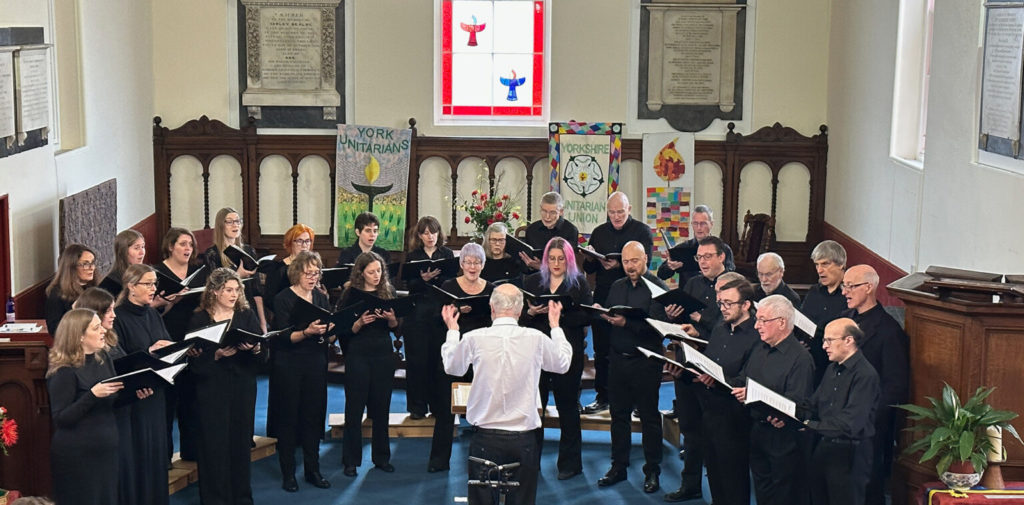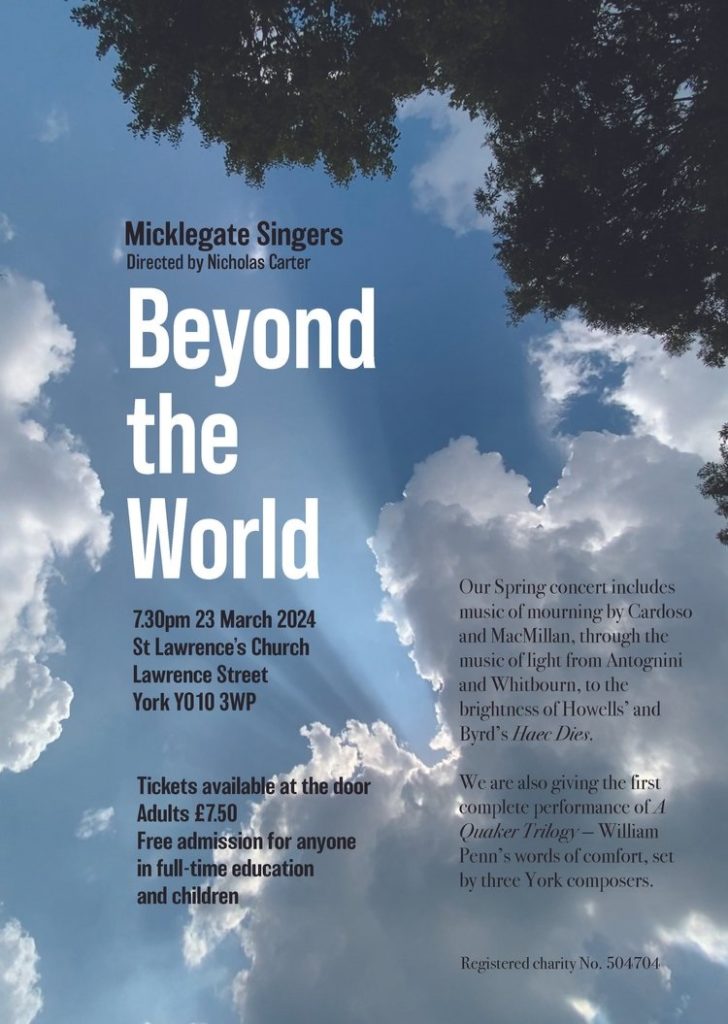
IN a Lent-themed programme entitled Beyond The World, the Micklegate Singers under Nicholas Carter laid out a typically adventurous menu built round the first complete performance of A Quaker Trilogy, featuring three composers responding to a text by William Penn.
Renaissance motets framed mainly living composers reflecting on life and death. At the start, Manuel Cardoso’s setting of a lesson for Maundy Thursday matins showed admirable restraint, well suited to a slow-moving soprano line against more active polyphony in the lower voices. His style typified the mid-17th century Portuguese penchant for colourful harmony, which was conveyed neatly here.
At the end of the evening, dynamic contrasts and smooth metre-changing lent Byrd’s Haec Dies plenty of excitement. Owing more than a little to its style was Howells’ setting of the same text, heard immediately before, with its leaping octaves before the final climax every bit as exultant.
Rhythmic spice was less evident in many of the modern works. The various sections of Matthew Martin’s Missa Brevis (St Dominic), interspersed through the first half, were a welcome exception, with a particularly lively ‘Gloria’ and carefree abandon at the first ‘Hosanna’ in the Sanctus.
On paper, the Penn trilogy looked like an excellent idea. But the chosen passage, doubtless well known to Quakers from its use at memorial meetings, but less so to those of other faiths, was heavily freighted with eschatological philosophy and not an obvious choice for musical setting. For its meaning to remain clear, it required delicate handling and minimal use of polyphony, a severe handicap to the University of York composers concerned.

David McGregor took some time to thin his texture into clarity, before reaching a spacious close evoking eternity. Joe Bates began chordally and was alive to the flow of words, even introducing some humming, before a thoughtful finish. Frederick Viner, the only one to set the entire passage, also took a mainly chordal approach, concluding with a low-lying intimacy that respected the text’s vision.
All three settings had something positive to offer. But it is doubtful whether they should be heard consecutively; they were not on this occasion. Having the same text set by three composers simultaneously is perhaps not such a great idea: who wants to hear the same message three times over? But don’t take my word for it. The three versions will be heard together on June 8 at The Mount School, at 1pm, as part of the York Festival of Ideas (entrance is free).
Other contributions, all tastefully handled, came from Ivo Antognini, whose modal Lux Aeterna benefited from gentle counterpoint and close harmony, and Ben Parry’s thoughtful Lighten Our Darkness.
James Whitbourn, who had died at the age of 60 only 12 days earlier, was represented by He Carried Me Away In The Spirit, a slow-moving meditation from the Book of Revelation memorable for its ecstatic phrase on ‘holy Jerusalem’.
Best of all these, however, was James MacMillan’s Who Shall Separate Us?, which keeps its words from Romans paramount. Its very high forceful Alleluia before an extremely hushed Amen were superbly done.
The Micklegate Singers are Yorkshire’s most adventurous chamber choir. Long may they remain so.
Review by Martin Dreyer
